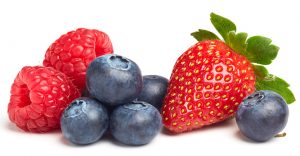Early learning tip: Good nutrition
According to a recent survey, the most commonly consumed vegetable among American toddlers is French fries. Let's work to change that. As parents we know what children eat is really important. Good nutrition plays a crucial role in a child’s development. Nutrition and health experts direct parents to healthy foods. But what to feed young children can be confusing.
Start healthy foods early
 The earlier children are familiar with healthy foods, the more likely they will eat them later – even into adulthood. Your role is to provide healthy food and encourage kids to eat it. In the early years, a parent’s influence on their child’s eating patterns is strong.
The earlier children are familiar with healthy foods, the more likely they will eat them later – even into adulthood. Your role is to provide healthy food and encourage kids to eat it. In the early years, a parent’s influence on their child’s eating patterns is strong.Tips for healthy meals
 Serve all food groups at every meal (vegetables, fruit, grains, dairy and protein).
Serve all food groups at every meal (vegetables, fruit, grains, dairy and protein).- Model healthy eating habits & encourage your child to eat a variety of foods.
- Re-name healthy food choices. (Carrots could become x-ray vision coins).
- Stock up on fresh foods.
- Try to avoid prepackaged, processed foods.
- Avoid foods that are heavily spiced, salted, buttered or sweetened.
- Serve 1 measuring tablespoon of each food for each year of your child's age. For example a 4 year old will get 4 tablespoons of yogurt.
Healthy snacks
Young children have smaller stomachs, so they cannot eat as much per meal as an adult. Healthy snacks can provide a nutrition boost. Schedule snacks around normal daily activities and try to space them at least 2 hours before meals.
Healthy snack options:
 Fresh or dried fruit (it can be diced, sliced, or cut into pieces)
Fresh or dried fruit (it can be diced, sliced, or cut into pieces)- Vegetables (cooked or raw)
- Avocado cubes
- Cheese (grated or diced)
- Cottage cheese
- Yogurt
- Whole grain dry cereals
- Graham crackers
- Hard boiled eggs
- Hummus













